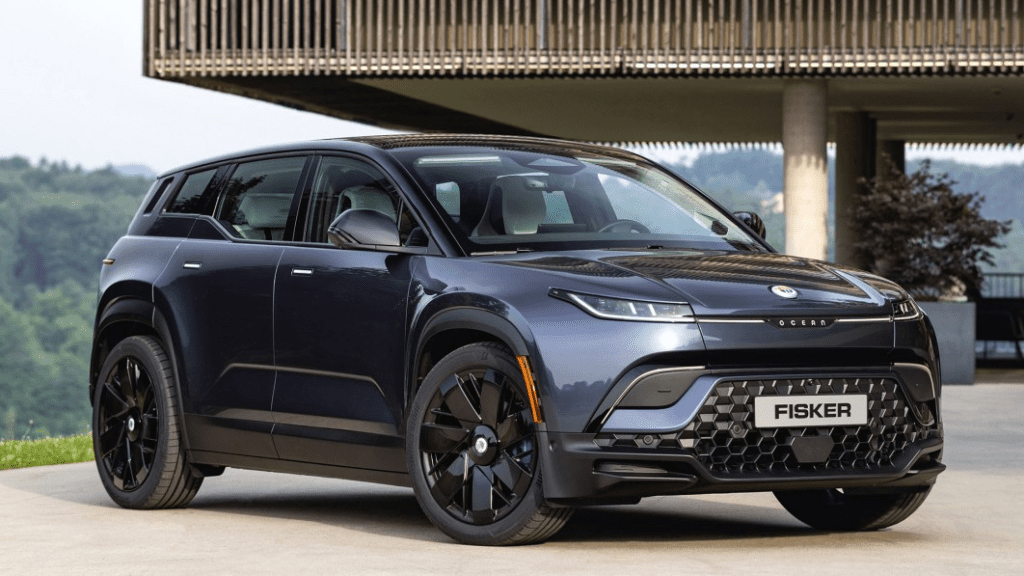Fisker is laying off 15% of staff and says it needs more cash ahead of a 'difficult year'

Electric vehicle startup Fisker is planning to lay off 15% of its workforce and says it likely does not have enough cash on hand to survive the next 12 months. The company says it is trying to find a way to raise that money as it works through a pivot from direct sales to a dealership model.
“[W]e have put a plan in place to streamline the company as we prepare for another difficult year,” founder and CEO Henrik Fisker said in a statement. Fisker reported more than 1,300 employees as of the end of September 2023, meaning the cut could affect close to 200 people. The company’s share price plunged 35% in after-hours trading.
Fisker said Thursday that it finished 2023 with $396 million in cash, though $70 million of that is restricted. The company says it is talking with one of its lenders about making “an additional investment” in the company. It also claims it is “in negotiations with a large automaker for a potential transaction which could include an investment in Fisker, joint development of one or more electric vehicle platforms, and North America manufacturing.”
A partnership like that will be crucial, as Fisker executives said on a call Thursday that it won’t invest any more money in its future products unless it works with another automaker. That means the fates of a pickup truck, compact EV and other models that Fisker has teased are now in question.
The company’s financial struggles come as it is trying to move to a wholesale model built around partnerships with dealers, a shift that Fisker says has “negatively impacted” its sales so far. It’s currently sitting on inventory of thousands of vehicles that are collectively worth more than $500 million. Fisker says it has received interest from around 250 dealerships but has only signed up 13 to date.
Fisker has also been dealing with a number of problems with its Ocean SUV, its only model so far, as TechCrunch reported earlier this month. The company has said it resolved some issues with a software update in December and planned to fix many more in a larger 2.0 update earlier this month, but that only started making its way to customer vehicles this week. It is currently being investigated by the National Highway Traffic Safety Administration for reports of sudden brake failure, as well as for a handful of vehicle rollaway incidents.
A number of big automakers are pulling back on their aggressive EV targets, and newer players are having trouble as well. Rivian recently announced it was cutting 10% of its workforce and that it expects to make around the same number of EVs this year as it did in 2023. Lucid Motors plans to build around 9,000 vehicles this year after once predicting it would be building 90,000 by this point in time.
Fisker has always differentiated itself from other EV startups, though, as it pursued an “asset light” business model. It designed the Ocean but outsourced the manufacturing to Magna Steyr in Austria. That decision helped it get cars on the road faster than some other startups, though it has imperiled the company in other ways. For instance, its Ocean SUV isn’t eligible for the point-of-sale federal EV tax credit because the vehicle isn’t manufactured in North America.
Ultimately, Fisker said Thursday that it sold just shy of 5,000 Ocean SUVs in 2023 and generated $273 million of revenue, after starting shipments in earnest in June. It lost just shy of $761 million across the full year. Magna produced just over 10,000 Oceans, and Fisker said it hopes to start shipping those to its new dealer partners in order to generate near-term cash. The company declined to say on the conference call how many vehicles its initial partners have ordered or plan to order.
Like many other EV startups that went public by merging with a special purpose acquisition company, Fisker has had a lot of growing pains as a public company. It had to delay the release of its third quarter 2023 financial results in part because it found weaknesses in its internal financial reporting. Around that time, it also had two different chief accounting officers resign.
These problems continued Thursday, as Fisker said it will be late reporting its full 2023 financial results. It also revealed it has discovered another material weakness related to its “revenue and the related balance sheet accounts.” As a result, it couched the financial figures it released Thursday as “preliminary,” going so far as to append an asterisk to the headline of the press release.




